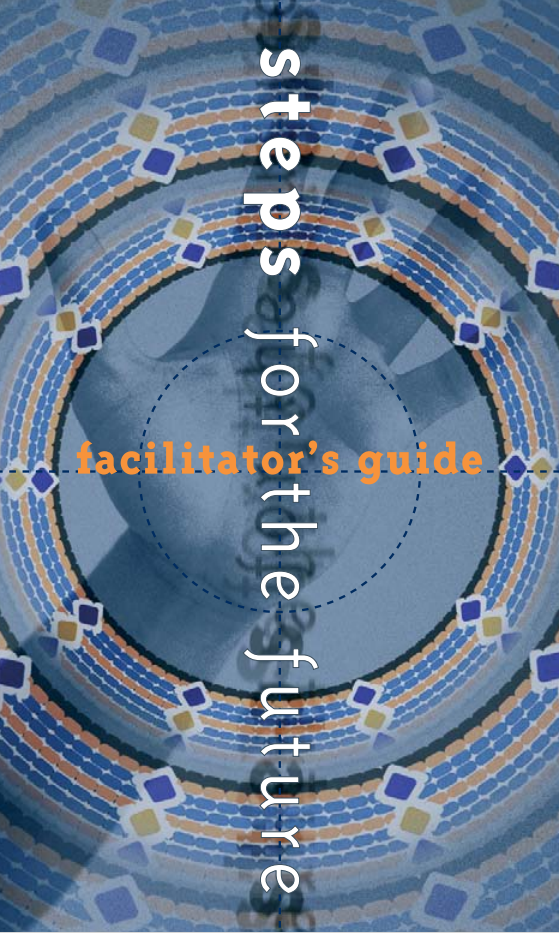Steps for the future, facilitator’s guide
The Steps for the Future film collection has emerged out of a collaboration of Southern African and international filmmakers, broadcasters, AIDS organisations and people living with HIV/ AIDS who have united to produce high-quality, professional films. These compelling stories reveal the effect of the HIV/AIDS pandemic on the lives of individuals, families, communities and nations. The films form part of a media-advocacy campaign which is intended to promote debate and discussion around HIV/AIDS related topics such as disclosure, discrimination, treatment and living positively. Diverse perspectives are presented through the eyes of a range of people and communities. These unconventional stories celebrate the strength of the people who share and reflect on their experiences of HIV/AIDS. Steps for the Future not only challenges fear and stigmatisation with
stories of hope, but also dismantles discrimination and ignorance by cultivating tolerance and promoting the belief that actually, life is a beautiful thing. This manual forms an important part of the Steps media advocacy campaign. It enables facilitators to use these films to stimulate debate and discussion with different age groups and diverse audiences. The facilitation process is intended to equip audiences with information and skills which will empower them to make important decisions and take responsibility for their lives.

The role of a facilitator
A facilitated screening provides an opportunity for discussion to take place. The facilitator needs to create an environment in which viewers feel confident enough to voice their opinions or request further information. Consequently, the facilitator acts as a chairperson, who guides discussion without dominating it. Whatever their level of literacy, the viewers’ knowledge and experience is extremely valuable. Once viewers understand that their personal life experience is valued, they are much more likely to appreciate not only the different, possibly opposing, opinions of the characters in the films, but also the various views of other group members. The facilitator might need to actively encourage the group to participate in interpreting and discussing the film. As many of the Steps films make viewers confront existing beliefs and misconceptions, such participation will play an
important role in stimulating both critical viewing and critical thinking. The facilitator, whose primary function is to guide discussion, will nevertheless be seen as a source of information and may have to answer specific questions. This manual contains reference to further information on the key issues raised.
;)